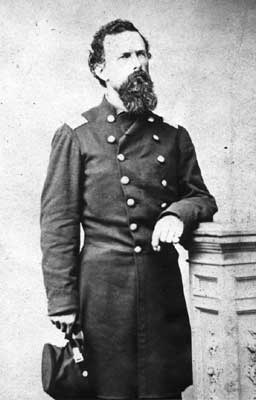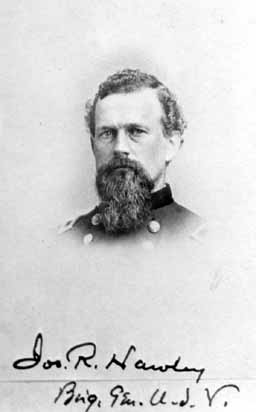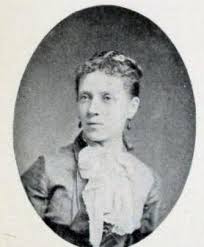 |
 |
Photographic Collection
 |
 |
Colonel Joseph Roswell Hawley commanded the second brigade of Seymour's army, including the Seventh Connecticut, Seventh New Hampshire, and the Eighth United States Colored Troops. An unusual collection of veteran and inexperienced units, Hawley's brigade would play an important role in the battle.
Their commander was a thirty-seven year old native of North Carolina, who at the age of eleven moved to his father's native state of Connecticut. After graduating from Hamilton College in 1847, Hawley served as a delegate to the 1852 Free Soil Convention, and was an early leader in the state Republican party. Hawley also served as editor of the Hartford Evening Press, a staunchly Republican and abolitionist newspaper.
As a captain in the First Connecticut Infantry, Hawley fought at First Bull Run, after which he was appointed lieutenant colonel of a new, three-year regiment, the Seventh Connecticut. Rising to the colonelcy of the Seventh, Hawley participated in the unit's battles along the Atlantic seaboard, eventually rising to brigade command.
Hawley's Brigade, particularly the Seventh New Hampshire, did not perform well at Olustee, and Hawley himself was accused of giving an incorrect order that threw part of his troops into confusion. Nonetheless, he remained in brigade command during the Petersburg and Fort Fisher campaigns, and eventually led a division. Hawley was mustered out of service in 1866 as a brevet major-general. His prominent post-war career included election to the Connecticut governorship (1866) and terms in both the United States House of Representatives and Senate (1881-1905).
Colonel Hawley's Official Report of the Battle

With so many men away in military service, on both sides, women began to engage in non-traditional roles. This included being the "head of families," shopkeepers, farm managers and even writing for newspapers. In many ways the Civil War changed the perception of women's roles in society, although there was still a long way to go before women could begin to achieve even partial equality.
Some fortunate women were able to accompany their husbands to semi-permanent duty stations. One such woman was Harriet Ward Foote Harwley, a first cousin of Harriet Beecher Stowe, author of Uncle Tom's Cabin. Harriet Hawley was possibly the first woman to write about Florida for the newspapers.
"Hawley was the daughter of Stowe's mother's youngest brother and came to Florida in the Civil War. Her husband, Joseph R. Hawley, was on garrison duty in Fernandina in 1863 and his wife joined him there. Together the Hawleys owned a newspaper in Hartford, Connecticut, and Harriet wrote eight articles about her experiences in the South. The first in the series was a moving description of reading the Emancipation Proclamation to black federal troops in the Sea Islands.
The President's Proclamation was read by Dr. Brisbane, a man who, as Col. Higginson said, in his early manhood had given freedom to his own slaves, it seemed fitting he should now in his maturer years, be premitted to read the tidings of freedom to others. A beautiful stand of colors was then presented to the regiment by Rev. Mr. French and as Col. Higginson received the unfurled banner in his hand, and turned to reply, a single quavering voice, evidently that of an aged Negro, burst out into song "America," "My Country tis of thee, Sweet Land of Liberty," &c. Instantly other voices among them joined in---the audience on the platform, much moved, would have joined also, but waving his hand and saying, "Leave them to themselves," Col. Higginson silenced us, and the song went on swelling louder and fuller till the whole regiment had joined in and all the great crowd also. Tears filled many eyes around me---for myself, I could hardly check the sobs, as I thought---for the first time---now---they have a Country---it is to them now a "land of Liberty.""While Harriet Hawley went on to write about a diversity of subjects---Civil War Fernandina and the beauty of the waterfront at St. Augustine, she never touched upon women's rights in print in Florida."
(quoted text from pp. 34-35, A Liberated Journalist and Yankee Women on the Florida Frontier, by John T. Foster, Jr., Sarah Whitmer Foster, and Roscoe, A. Turnquest, The Florida Historical Quarterly, Vol. 91, Summer 2011)
The General's Wife: Harriet Ward Hawley in the Civil War
External Web sites related to the Battle of Olustee
Wikipedia page on Joseph Roswell Hawley
Union Order of Battle
Battle of Olustee home page
http://battleofolustee.org/